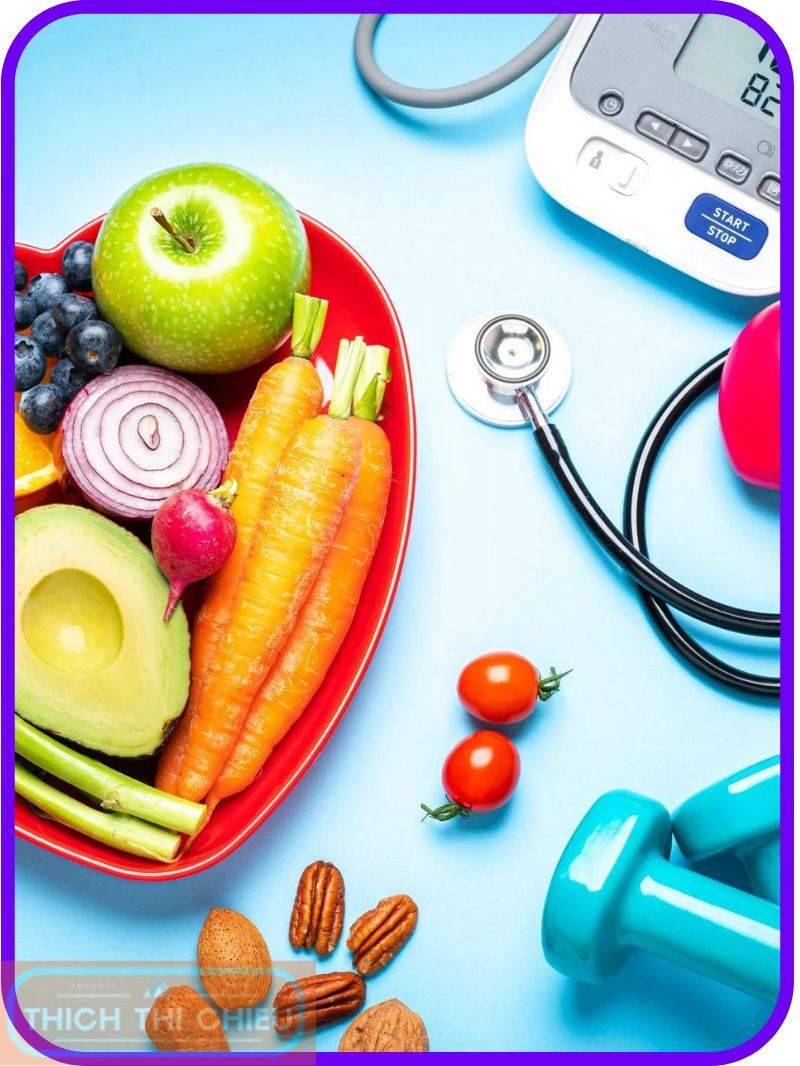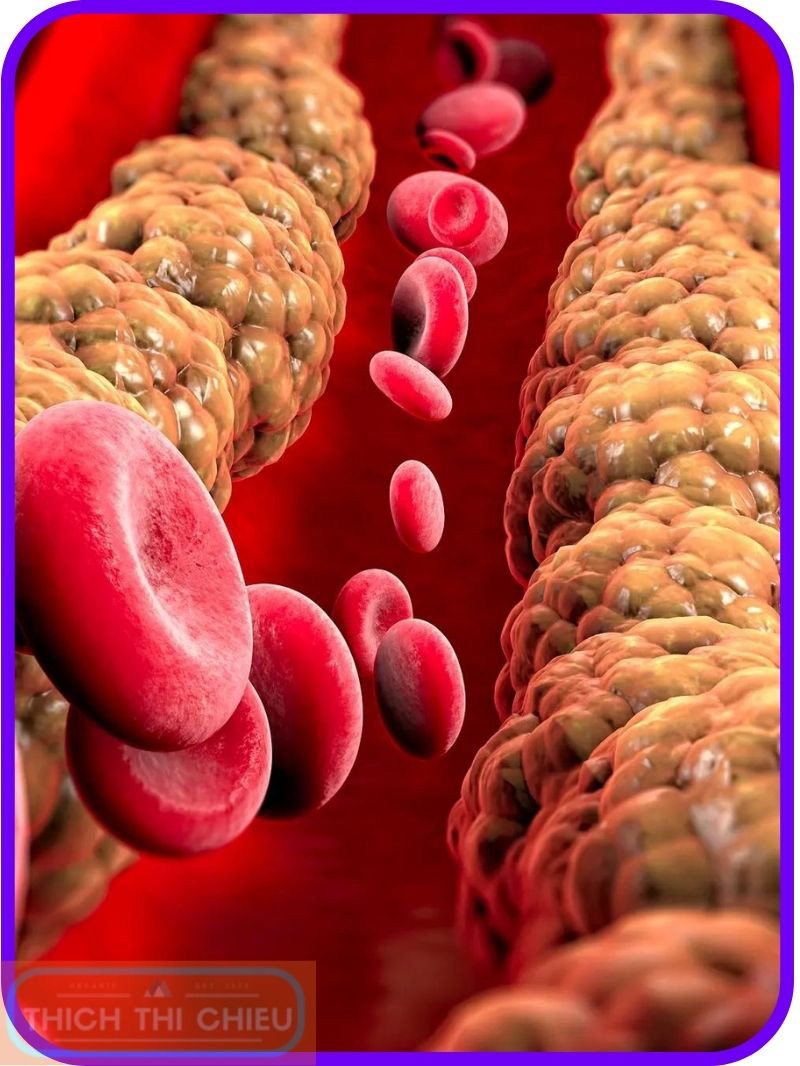Cholesterol is a waxy substance found in your blood. It is an essential nutrient that your body needs to build cells, produce hormones, and transport fats throughout your body. However, high levels of cholesterol, particularly LDL (low-density lipoprotein) cholesterol, can increase your risk of heart disease, stroke, and other health problems.
There are a number of things you can do to lower your LDL cholesterol levels, including lifestyle changes and medication. This article will discuss some of the most effective ways to lower your bad cholesterol.
Dietary Changes to Lower Bad Cholesterol
High levels of LDL (low-density lipoprotein) cholesterol, often referred to as “bad” cholesterol, can increase your risk of heart disease, stroke, and other health problems. However, by making certain dietary changes, you can effectively lower your LDL cholesterol levels and improve your overall health.
Reduce Saturated Fats
Saturated fats, primarily found in red meat, full-fat dairy products, and processed foods, contribute significantly to elevated LDL cholesterol levels. To reduce saturated fat intake, consider the following:
- Limit red meat consumption: Choose lean cuts of red meat, such as flank steak or sirloin, and limit your intake to a few servings per week.
- Opt for low-fat or fat-free dairy products: Replace whole milk with skim or low-fat milk, and choose low-fat or fat-free yogurt and cheese.
- Choose plant-based alternatives: Replace red meat with fish, poultry, or plant-based protein sources such as beans, lentils, and tofu.
- Be mindful of processed foods: Processed foods often contain hidden saturated fats. Check food labels carefully and choose products that are low in saturated fats.
Eliminate Trans Fats
Trans fats, found in margarine, fried foods, and baked goods, are even more detrimental to cholesterol levels than saturated fats. To eliminate trans fats from your diet:
- Avoid margarine: Instead of margarine, use butter or olive oil for cooking or spreading.
- Limit fried foods: Avoid fast food, fried snacks, and deep-fried dishes. Choose healthier cooking methods such as baking, grilling, or steaming.
- Read food labels carefully: Check ingredients lists for “partially hydrogenated oils,” which indicate the presence of trans fats.
Eat Foods Rich in Omega-3 Fatty Acids
Omega-3 fatty acids, particularly abundant in fatty fish like salmon, mackerel, and herring, can help lower LDL cholesterol levels and reduce the risk of heart disease. Aim to incorporate two servings of fatty fish per week into your diet.
Increase Soluble Fiber
Soluble fiber, found in oats, beans, fruits, and vegetables, plays a crucial role in lowering LDL cholesterol levels. It binds to cholesterol in the digestive tract and prevents its absorption into the bloodstream. Aim to consume 10-25 grams of soluble fiber daily.
- Start your day with oatmeal: Oatmeal is an excellent source of soluble fiber, providing around 5 grams per half-cup serving.
- Incorporate beans into your meals: Beans, lentils, and chickpeas are rich in soluble fiber. Add them to salads, soups, stews, and chili.
- Consume plenty of fruits and vegetables: Fruits like apples, pears, and oranges, and vegetables like broccoli, Brussels sprouts, and carrots, are excellent sources of soluble fiber.
- Choose whole grains over refined grains: Whole grains, such as brown rice, quinoa, and whole-wheat bread, provide more soluble fiber than refined grains.
Lifestyle Changes to Lower Bad Cholesterol
High levels of LDL (low-density lipoprotein) cholesterol, often referred to as “bad” cholesterol, can increase your risk of heart disease, stroke, and other health problems. While dietary changes play a significant role in lowering LDL cholesterol, lifestyle modifications also contribute significantly to improving cholesterol levels and overall health.
Exercise Regularly
Regular physical activity is a cornerstone of a healthy lifestyle and can effectively lower LDL cholesterol levels. Aim for at least 30 minutes of moderate-intensity exercise most days of the week. This could include activities such as brisk walking, jogging, swimming, cycling, or dancing.
Benefits of Exercise:
- Increases HDL (high-density lipoprotein) cholesterol, the “good” cholesterol, which counteracts the effects of LDL cholesterol.
- Helps maintain a healthy weight, which is crucial for lowering LDL cholesterol levels.
- Improves blood circulation and reduces the risk of heart disease and stroke.
Lose Weight
Carrying excess weight can significantly contribute to high LDL cholesterol levels. Even a modest weight loss can have a positive impact on cholesterol levels. Aim to lose 5-10% of your current weight.
Strategies for Weight Loss:
- Adopt a balanced diet: Focus on consuming whole grains, fruits, vegetables, and lean protein sources. Limit processed foods, sugary drinks, and unhealthy fats.
- Portion control: Use smaller plates and be mindful of portion sizes.
- Incorporate physical activity: Regular exercise not only helps with weight loss but also improves overall health.
- Seek professional guidance: Consult a registered dietitian or nutritionist for personalized weight loss plans and strategies.
Quit Smoking
Smoking is a major risk factor for heart disease and stroke, and it also contributes to high LDL cholesterol levels. Quitting smoking is one of the best things you can do for your heart health.
Benefits of Quitting Smoking:
- Immediately reduces the risk of heart attack and stroke.
- Improves blood circulation and oxygen levels.
- Lowers LDL cholesterol levels and increases HDL cholesterol levels.
- Reduces the risk of developing various types of cancer.
Strategies for Quitting Smoking:
- Seek support: Join a smoking cessation program or find a support group to help you through the process.
- Identify triggers: Recognize situations that trigger your urge to smoke and develop strategies to avoid or manage them.
- Consider nicotine replacement therapy: Nicotine patches, gum, or lozenges can help reduce cravings and withdrawal symptoms.
Manage Stress
Chronic stress can raise LDL cholesterol levels and increase the risk of heart disease. Find healthy ways to manage stress and incorporate relaxation techniques into your daily routine.
Stress-Management Techniques:
- Exercise: Physical activity is an effective way to reduce stress and improve mood.
- Meditation: Regular meditation can help calm the mind, reduce anxiety, and improve overall well-being.
- Yoga: Yoga combines physical postures, breathing exercises, and meditation to promote relaxation and stress reduction.
- Mindfulness practices: Mindfulness techniques, such as deep breathing exercises and focusing on the present moment, can help manage stress and increase self-awareness.
- Seek professional help: If stress is overwhelming and affecting your daily life, consider seeking professional counseling or therapy.
Medication for Lowering Bad Cholesterol
If lifestyle changes, such as diet, exercise, and weight loss, are not enough to lower your LDL (low-density lipoprotein) cholesterol levels, your doctor may prescribe medication. There are a number of different types of cholesterol-lowering medications available, each with its own benefits, risks, and side effects.
Types of Cholesterol-Lowering Medications
Statins
Statins are the most common type of cholesterol-lowering medication. They work by blocking an enzyme in the liver that is responsible for producing cholesterol. Statins are generally safe and effective, and they can lower LDL cholesterol levels by up to 50%.
Examples of statins: Atorvastatin (Lipitor), Rosuvastatin (Crestor), Simvastatin (Zocor), Pravastatin (Pravachol), Lovastatin (Mevacor), Fluvastatin (Lescol), Pitavastatin (Livalo)
Bile acid resins
Bile acid resins bind to bile acids in the digestive tract, preventing them from being reabsorbed into the bloodstream. This forces the liver to produce more bile acids, which requires cholesterol from the bloodstream. Bile acid resins are less commonly used than statins, but they can be effective for people who cannot tolerate statins.
Examples of bile acid resins: Colestipol (Colestid), Cholestyramine (Questran), Questran Light, Welchol
Ezetimibe
Ezetimibe works by blocking the absorption of cholesterol from the intestine. It is often used in combination with statins for people who have very high LDL cholesterol levels.
Brand name: Zetia
PCSK9 inhibitors
PCSK9 inhibitors are a newer type of cholesterol-lowering medication that works by blocking a protein that helps the liver remove LDL cholesterol from the bloodstream. They are typically reserved for people with very high LDL cholesterol levels that cannot be controlled with other medications.
Brand names: Evolocumab (Repatha), Alirocumab (Praluent)
Choosing a Cholesterol-Lowering Medication
The best type of cholesterol-lowering medication for you will depend on a number of factors, including your LDL cholesterol levels, your other medical conditions, and any other medications you are taking. You should work with your doctor to choose the medication that is right for you.
Risks and Side Effects of Cholesterol-Lowering Medications
All cholesterol-lowering medications can have side effects. The most common side effects of statins are muscle aches and pains, but these are usually mild and go away on their own. Bile acid resins can cause constipation and diarrhea. Ezetimibe can cause liver problems. PCSK9 inhibitors can cause injection site reactions.
Talk to Your Doctor
If you have high LDL cholesterol levels, talk to your doctor about whether you need to take medication. Cholesterol-lowering medications can be an effective way to lower your LDL cholesterol levels and reduce your risk of heart disease and stroke.
Lowering bad cholesterol is crucial for maintaining heart health and reducing the risk of heart disease, stroke, and other health problems. By making lifestyle changes, such as adopting a healthy diet, exercising regularly, losing weight, quitting smoking, and managing stress, you can effectively lower your LDL cholesterol levels. If lifestyle changes alone are not enough, your doctor may prescribe medication to further lower your LDL cholesterol levels and improve your overall heart health.
Hopefully, the above article of TTC has provided you with useful information. If you have any questions or concerns, please leave a comment below.






Leave a Reply